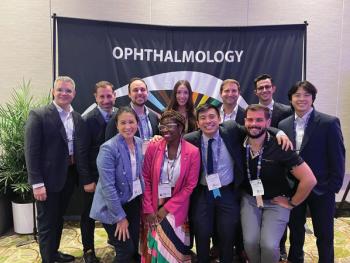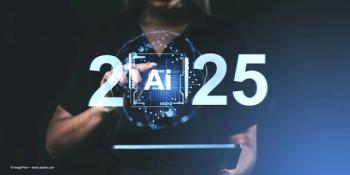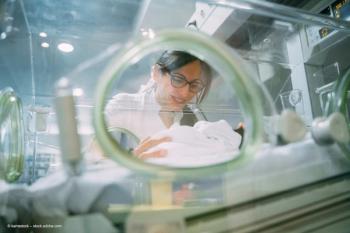
- Modern Retina Winter 2024
- Volume 4
- Issue 4
A-memia? Anecdotal evidence in the era of memes
Ian C. Han, MD, shares his thoughts on the value of anecdotal evidence in our winter 2024 editorial.
Like many, I was privileged to attend the annual American Academy of Ophthalmology (AAO) meeting in Chicago, Illinois, in October. As an educator, a highlight is always hearing updates from former trainees about their successes, particularly when prior advice has had positive influence on their journeys, even years later.
The depth of conversations I enjoyed at the meeting was particularly invigorating. At our alumni reception, however, I found humor in learning that some residents now communicate almost entirely through trending memes. Since I have a minimal social media presence myself, I quickly confessed ignorance on the subject, much to the incredulity of others far more savvy. “Well, I must be a-memic!” I quipped before defensively pointing out my white hair and telling stories of 20-gauge vitrectomies or taking the Ophthalmic Knowledge Assessment Program exam on Scantron.
Life moves quickly. One moment you’re the new resident, eager to learn everything about ophthalmology. For a fleeting moment after, you might feel relevant in your career — confident, competent, productive. But in recognizing my “a-memia,” I wondered when I had become an “old soul,” even per my senior colleagues!
On reflection, perhaps “a-memia” is a badge of honor, having been trained by many similar “old souls” in retina who continue to impact our field. In their mold, the wiser I have become, the less I have followed trends or sought to share simple facts. More and more, I teach by telling stories and gain wisdom through the experiences of others.
This return to “anecdotal evidence” may seem peculiar in the age of big data and large clinical trials. However, our society has shifted from limited access to information to overwhelming availability. The struggle of modern medicine is no longer finding data but handling the sheer volume, identifying reliable sources, and interpreting it all in contexts. Like memes, the data are everywhere, but I’m not sure we see the world more clearly. Stories, meanwhile, provide perspective to understand relevance, recognize real voices, and help us humanistically relate better to others.
Overall, the AAO meeting was a wonderful reminder of the vibrancy of our field, including tremendous progress through evidence-based medicine. At the core, though, such meetings remain about relationships and the power of our personal experiences. Understanding the roots of knowledge through “old souls” gives context for our present decisions and guidance for future directions. In the era of lost conversations and transient memes, such “anecdotal evidence” remains durably impactful.
Ian C. Han, MD
Director, Retina Service | Associate Professor
Institute for Vision Research
Department of Ophthalmology and Visual Sciences
University of Iowa Hospitals and Clinics
E: ian-han@uiowa.edu
X: @3Y3MD
Articles in this issue
about 1 year ago
Excellence across the board at the 2024 Euretina Congressabout 1 year ago
Ocular nerve regrowth following use of diabetes drugabout 1 year ago
The deep dish on all things ophthalmology at AAO 2024about 1 year ago
Advancements in ocular drug deliveryabout 1 year ago
A field guide to optic disc drusenNewsletter
Keep your retina practice on the forefront—subscribe for expert analysis and emerging trends in retinal disease management.












































